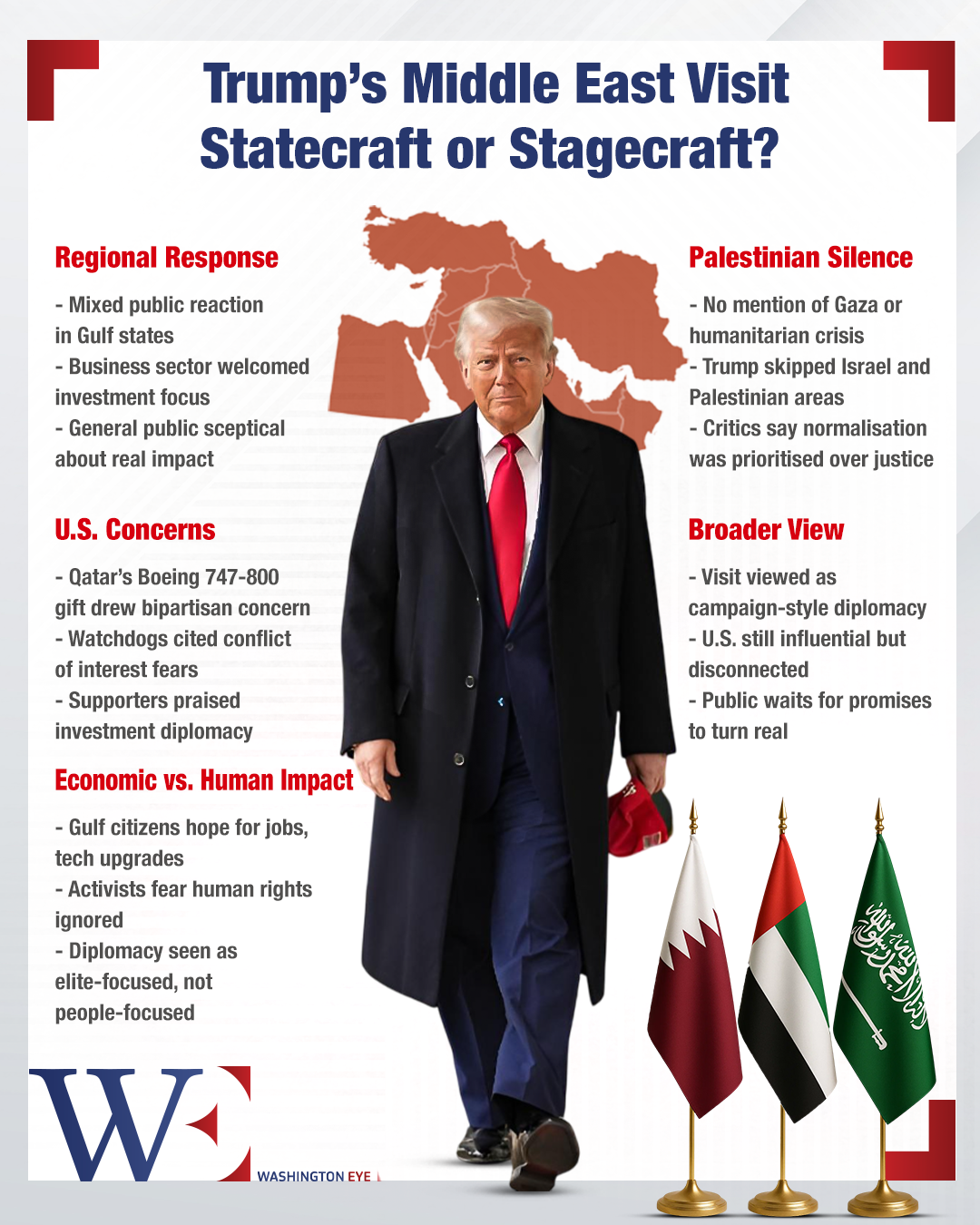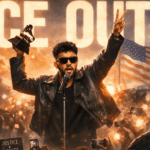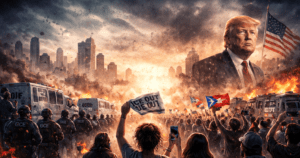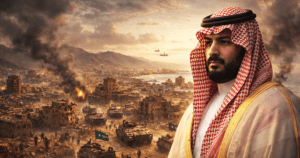President Donald Trump’s recent tour of the Middle East—his first trip to the Middle East in his second term—was met with mixed public reactions across the region and in the United States. The trip, which spanned Saudi Arabia, the UAE, and Qatar, combined military pageantry with high-level economic announcements, but also reignited debate about what U.S. engagement in the Middle East truly delivers for the people.
While Gulf leaders offered a red-carpet welcome, and media coverage in state-aligned outlets praised the visit’s “strategic depth” and “economic promise”, public opinion on the ground was more complex. In Saudi Arabia and the UAE, segments of the business community applauded Trump’s emphasis on commercial partnerships and infrastructure investments. “The hope is that this kind of diplomacy brings jobs and faster tech development”, a Saudi entrepreneur said during the Riyadh leg of the tour.
Palestinian Frustration and Regional Silence
One of the most striking aspects of the visit was what wasn’t said. Despite the Gaza war continuing to dominate headlines globally, Trump made no public reference to the ongoing humanitarian crisis, nor did his itinerary include stops in Israel or the Palestinian territories. Palestinian analysts and diaspora communities criticized this silence as deliberate—a reflection of a strategy that values regional normalization over conflict resolution.
“The people in Gaza don’t need hotels and resorts; they need security and sovereignty”, said a Palestinian American organizer. The lack of public engagement with the conflict, even symbolically, was seen by many as a missed opportunity to address one of the region’s most urgent humanitarian crises.
American Reactions: Ethics and Optics
Back in the United States, public response to Trump’s Middle East visit centered on both geopolitical implications and ethical scrutiny. The most contentious revelation was Qatar’s gift of a $400 million Boeing 747-800 jet for use as a new Air Force One. While the administration insisted the gift was to the United States, not to President Trump personally, critics from across the political spectrum raised concerns about potential conflicts of interest—particularly given Trump’s private business relationships in the region.
Ethics watchdogs and some lawmakers called for further transparency, citing past controversies over foreign emoluments and influence. Supporters, meanwhile, hailed the trip as a reaffirmation of American strength abroad, arguing that Trump’s ability to extract multi-billion dollar investment commitments from regional allies demonstrates effective leadership.
The People Between Deals
Despite the diplomatic glitz and billion-dollar announcements, Trump’s visit left many in the region asking how much will actually trickle down. For Gulf citizens, the hope is that foreign partnerships lead to real economic benefits—more jobs, better infrastructure, and technological innovation. For migrant workers and political activists, there is fear that the U.S. once again reinforced a model of diplomacy that sidelines human rights in favor of economic and military priorities.
The visit also reinforced a pattern: diplomacy that is visually grand and headline-driven, yet often disconnected from the day-to-day concerns of the people living under the policies negotiated in palaces and boardrooms.
A Final Note
Trump’s 2025 Middle East visit was as much a campaign performance as it was a diplomatic exercise. While it signaled continued U.S. relevance in a region increasingly exploring alternatives—like China and Turkey—it also underscored how far-removed high-level diplomacy can be from the public’s priorities. As the region’s people navigate the implications of shifting alliances and soaring promises, the visit served as a reminder: behind every strategic deal lies a population waiting to see what, if anything, truly changes for them.















